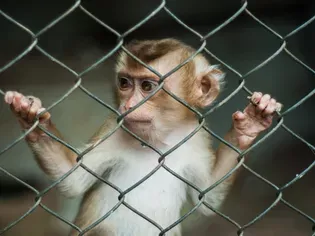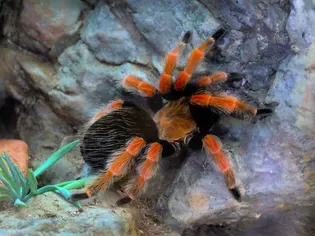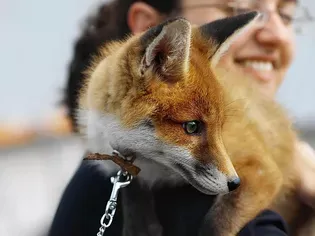Should You Keep a Pet Monkey?
Updated on 05/26/24

Should You Keep a Pet Monkey?
Introduction
The allure of exotic pets like monkeys has captivated humans for centuries. These intelligent and playful creatures possess an undeniable charm, but their suitability as household companions is a matter of significant debate. Before embarking on the journey of pet monkey ownership, it is crucial to weigh the pros and cons thoroughly. This comprehensive guide will delve into the complexities of keeping a monkey as a pet, providing you with the information you need to make an informed decision.
The Pros of Pet Monkey Ownership
* Unparalleled Intelligence: Monkeys are renowned for their cognitive abilities, exhibiting problem-solving skills, curiosity, and adaptability. Engaging with them can be intellectually stimulating and rewarding.
* Affectionate Nature: Many monkey species form strong bonds with their human caregivers and can be highly affectionate. They enjoy cuddles, playtime, and attention.
* Exotic Appeal: Owning a monkey is a unique and exotic experience that can add excitement and intrigue to your life. They are fascinating creatures that can draw admiration and curiosity.
* Conservation Contribution: In some cases, owning a monkey can contribute to conservation efforts. Some endangered species are bred in captivity to help protect their populations in the wild.
The Cons of Pet Monkey Ownership
* Extensive Care Requirements: Monkeys are complex creatures that require a high level of care, including specialized diets, veterinary attention, and extensive enrichment activities. They may also require regular cage cleaning and a suitable outdoor enclosure.
* Legal and Ethical Concerns: Keeping a monkey as a pet may be illegal in some jurisdictions. Additionally, there are ethical concerns related to the welfare and natural behavior of animals kept in captivity.
* Difficult Training: Monkeys can be challenging to train and may exhibit undesirable behaviors, such as biting, scratching, or throwing objects. Their complex social dynamics can make them unpredictable at times.
* Potential Health Risks: Monkeys can carry diseases that are transmissible to humans, such as herpes B and tuberculosis. It is essential to take appropriate precautions and seek veterinary advice to minimize health risks.
Examples to Illustrate the Challenges
* Dietary Needs: Monkeys have specialized dietary requirements based on their species. Captive monkeys may require a diet of fruits, vegetables, insects, and specially formulated pellets. Feeding them the wrong diet can lead to health problems.
* Veterinary Care: Monkeys have unique health needs that require specialized veterinary care. Regular checkups, vaccinations, and emergency treatment can be expensive and time-consuming.
* Enrichment Activities: Monkeys need a variety of enrichment activities to stimulate their minds and keep them from becoming bored or depressed. These activities can include puzzles, toys, foraging opportunities, and social interactions.
* Legal Restrictions: In the United States, several states have laws that restrict or prohibit the keeping of monkeys as pets. It is essential to check local regulations before acquiring a monkey.
Alternative Ways to Interact with Monkeys
If the challenges of pet monkey ownership outweigh the potential benefits, there are alternative ways to interact with these fascinating creatures:
* Visit Zoos and Sanctuaries: Zoos and sanctuaries provide opportunities to observe monkeys in a controlled and educational environment. You can learn about their behavior, habitats, and conservation status.
* Volunteer at Rehabilitation Centers: Rehabilitation centers care for injured or orphaned monkeys. Volunteering is a rewarding way to contribute to their well-being and learn more about their needs.
* Support Conservation Organizations: Supporting organizations that protect monkeys in the wild helps ensure their survival and preserve their natural habitats.
Conclusion
The decision of whether or not to keep a monkey as a pet is a complex one that requires careful consideration. While monkeys can be captivating and intelligent companions, their specialized care requirements, legal implications, and ethical concerns make them unsuitable for most people. By understanding the challenges involved, you can make an informed choice that respects the well-being of these amazing creatures. If you are unable to commit to the demanding responsibilities of pet monkey ownership, there are alternative ways to enjoy the wonder of monkeys through responsible interactions and conservation efforts.
Explore More Pets

Exotic Pet Species
Should You Keep a Chimpanzee as a Pet?

Exotic Pet Species
Should You Keep a Raccoon as a Pet?

Exotic Pet Species
How to Care for a Pet Mexican Red-Knee Tarantula

Exotic Pet Species
12 Best Exotic Pets for Apartment Living

Exotic Pet Species
Best Foxes to Keep as Pets

Exotic Pet Species
Should You Keep a Northern Flying Squirrel as a Pet?

Exotic Pet Species
Should You Keep Stick Insect as a Pet?

Exotic Pet Species
Should You Keep a Big Cat as a Pet?
